For same-sex partners dreaming of parenthood, surrogacy represents hope, possibility, and the chance to build the family you've always envisioned. Whether you're two dads eager to welcome your first child or a lesbian couple ready to expand your family, surrogacy can make those dreams a reality.
If you're researching surrogacy options in Louisiana, you're likely discovering that the legal landscape feels more complex than you initially expected. Louisiana House Bill 1102, which took effect in August 2016, currently restricts surrogacy contracts to heterosexual married couples using their own egg and sperm, with additional requirements including medical necessity documentation, court approval before embryo transfer, and limitations on compensation to expense reimbursement only. You cannot legally pursue surrogacy within Louisiana's borders, though your path to parenthood certainly doesn't end there.
The encouraging reality is that gay and lesbian families across the country successfully navigate these challenges every day by working with experienced agencies who specialize in interstate arrangements. Pursuing surrogacy in supportive states allows you to become a parent faster while ensuring your parental rights stay fully protected from day one.
Ready to explore your options? Reach out to our team to learn how we can help you navigate LGBT family building laws across the United States.
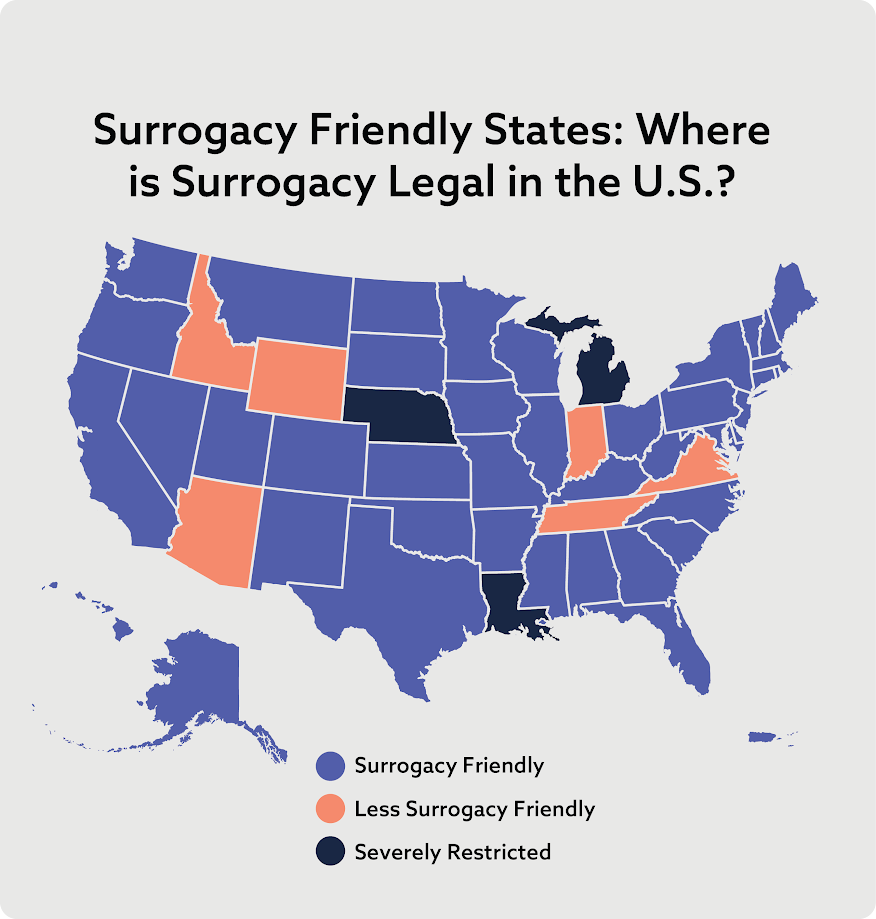
Louisiana Pre-Birth Parentage Orders: Why Same-Sex Couples Are Excluded Under HB 1102
Louisiana courts won't issue pre-birth orders for same-sex intended parents under any circumstances. The state's restrictive laws only allow pre-birth parentage orders for married heterosexual couples who meet very specific criteria: both must be genetically related to the child, have lived in Louisiana for at least six months, can prove medical necessity for surrogacy, limit compensation to expense reimbursement only (no additional payment to the surrogate), and must obtain court approval prior to embryo transfer.
Even when one or both of you are genetically related to your future baby, Louisiana courts still won't approve a pre-birth order for same-sex couples or anyone using donor gametes. You cannot establish legal parentage before your child's birth through Louisiana's court system.
Additionally, Louisiana will not honor pre-birth orders from other states. The Louisiana Supreme Court made this clear in Adar v. Smith (2011), ruling that the state would not require Vital Records to honor out-of-state pre-birth parentage orders.
Fortunately, many supportive states routinely grant pre-birth orders to married and unmarried same-sex couples, regardless of genetic connection to the child. States like California, Connecticut, Delaware, and Washington have inclusive laws that protect same-sex intended parents' rights from conception through birth. In these states, you'll walk into the hospital as recognized legal parents, not as hopeful bystanders waiting for legal approval.
Non-Genetic Parent Recognition in Louisiana Same-Sex Surrogacy Cases
Louisiana's surrogacy laws don't provide any pathway for non-genetic parents in same-sex relationships to be declared legal parents at birth. The state's surrogacy framework restricts legal parentage to married heterosexual couples who both provide genetic material for conception.
Only the genetic parent (if any) may have initial legal recognition, leaving the non-genetic parent facing potential legal uncertainty. Both of you may need to complete additional legal steps after birth, which can feel overwhelming during what should be a celebration of your growing family.
Unmarried LGBT Couples and Louisiana Dual Parentage Laws
Louisiana doesn't allow unmarried gay or lesbian couples to establish dual legal parentage through its surrogacy framework. Unmarried intended parent couples face significant barriers since they typically cannot complete a second-parent adoption after their child is born in Louisiana.
Marriage equality means all same-sex couples can marry in Louisiana, which provides some protections under federal law, even when state surrogacy laws remain restrictive. The Obergefell decision guarantees equal access to all marriage-related rights for same-sex spouses, and preventing a married same-sex couple from being listed on their child's birth certificate violates constitutional law.
Marriage before pursuing surrogacy can strengthen your legal position, though it won't overcome Louisiana's fundamental restrictions on same-sex surrogacy contracts.
Single LGBTQ Parent Rights Under Louisiana Donor Gamete Restrictions
Single gay, lesbian, and queer individuals face the same restrictions as same-sex couples under Louisiana's surrogacy laws. Any surrogacy contract involving donor gametes is unlawful in Louisiana, and parties can face fines and imprisonment.
Since single intended parents typically require donor eggs or sperm to conceive, Louisiana's laws effectively prohibit single LGBTQ individuals from pursuing in-state surrogacy. Gay men need both egg and sperm donors, lesbian women need sperm donors, and single individuals often use donor gametes due to medical necessity.
Alternative Options for Single LGBTQ Parents
Many states welcome single intended parents with the same legal protections and pre-birth order opportunities as married couples. Your solo journey to parenthood is absolutely valid and achievable—just not within Louisiana's current legal framework.
Louisiana Birth Certificate Designation Rules for Same-Sex Parents
Louisiana's birth certificate policies for same-sex couples remain complex and potentially problematic. As of 2021, the standard parent designation options on a Louisiana birth certificate are "mother" and "father," with no options specifically designed for same-sex couples.
While Louisiana Vital Records has indicated they will list both same-sex parents on birth certificates following the Obergefell decision, the exact formatting and terminology used may vary. Some same-sex couples have reported potential misgendering issues on their children's birth certificates, though official policies on this matter are not clearly documented.
The lack of clear, consistent guidance on birth certificate terminology may create confusion and emotional stress for same-sex families during what should be a joyful time. Results may also vary depending on which Louisiana parish (county) processes your paperwork.
Louisiana Birth Certificate Processing Timeline for LGBT Families
An initial birth certificate takes 4-6 weeks in Louisiana. If a stepparent adoption becomes necessary, the final birth certificate won't be issued for more than 6 months, since Louisiana law requires that stepparent adoptions cannot be filed until at least 6 months after birth.
These extended timelines create uncertainty for gay and lesbian families, especially when compared to supportive states that issue accurate birth certificates within days of birth. Many families find this waiting period emotionally challenging, particularly when they're eager to have official documentation that reflects their legal parental status.
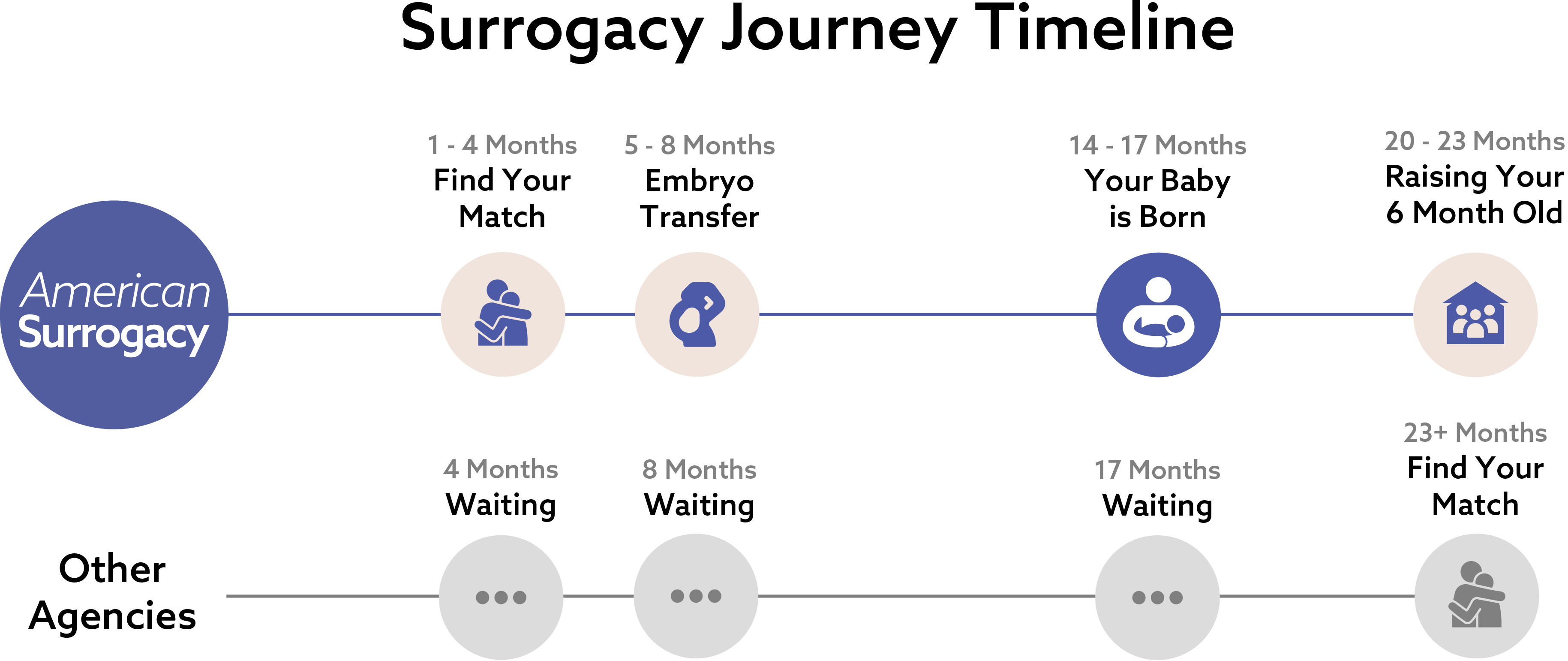
Louisiana Second Parent Adoption Requirements After Same-Sex Surrogacy
Most gay and lesbian couples will likely need to complete a second parent adoption after birth, even if both parents eventually appear on the birth certificate. However, this option is only available to married same-sex couples when at least one parent is genetically related to the child.
Louisiana courts will grant second parent adoptions or stepparent adoptions to married same-sex couples, but only when one partner has a genetic connection to the child. For married lesbian couples where one partner used their own egg, the non-biological parent can complete an Intrafamily Adoption six months after the birth of the child.
If both partners require donor gametes (such as male couples needing both donor eggs and donor sperm, or couples with fertility issues requiring both donor eggs and donor sperm), Louisiana courts will not grant second parent adoptions even for married couples.
Requirements for eligible couples include legal marriage, a six-month waiting period after birth, court approval, legal representation, and a hearing where both intended parents must be present. This process can be lengthy, expensive, and emotionally challenging—especially when other states offer immediate recognition for both parents.
The waiting period often feels particularly difficult for families who want both parents legally recognized from the moment their child arrives. Many partners describe this gap as creating unnecessary anxiety during their early months as new parents. Additionally, the outcome of these proceedings may vary depending on which Louisiana parish (county) handles your case.
Interstate Surrogacy Contract Protections for Louisiana LGBT Couples
Louisiana may not enforce surrogacy contracts for gay and lesbian couples, but having a detailed agreement remains crucial when working with a surrogate in another state. A well-drafted contract acts as your legal safety net, protecting your interests throughout the process.
Essential Contract Elements for Same-Sex Couples
Your contract should clearly establish parental rights and responsibilities, define who makes medical decisions during pregnancy, and outline financial obligations including compensation, medical expenses, and unexpected costs. It must ensure legal compliance with requirements in the state where surrogacy occurs, and include birth planning details like hospital preferences, birth certificate procedures, and post-delivery logistics.
It's worth noting that Louisiana's surrogacy law requires court approval before embryo transfer for any valid surrogacy contract within the state—a requirement that doesn't apply to most other states but demonstrates how restrictive Louisiana's approach is compared to more supportive jurisdictions.
Working with an experienced agency ensures your contract protects your interests while complying with laws in supportive states. Professional guidance can mean the difference between a smooth legal process and costly complications down the road.
Professional Surrogacy Agency Benefits for Louisiana Same-Sex Couples
Gay and lesbian hopeful parents face unique legal and logistical challenges that make professional guidance essential rather than optional. American Surrogacy specializes in helping you and your partner navigate these complexities, transforming what could be an overwhelming process into a supported journey toward parenthood.
Faster Matching and Legal Protection
Our established network of carefully screened surrogates means you don't have to wait any longer to start your family. We connect you with LGBTQ-friendly surrogates in states with protective laws, cutting months off your timeline compared to searching independently.
We work with fertility lawyers who focus on same-sex family law across multiple states. Your rights stay protected from contract signing through birth certificate issuance, eliminating guesswork about legal requirements.
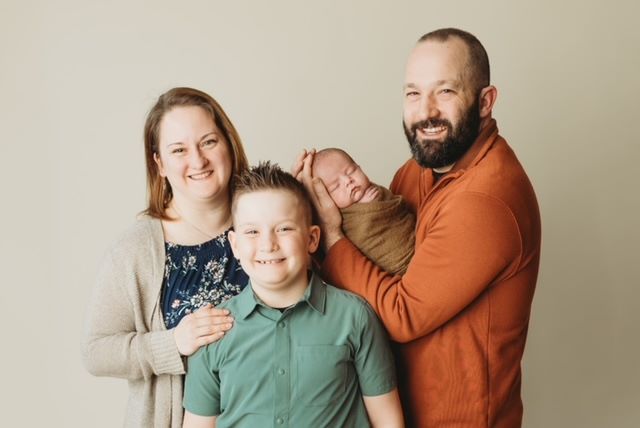
2 Months
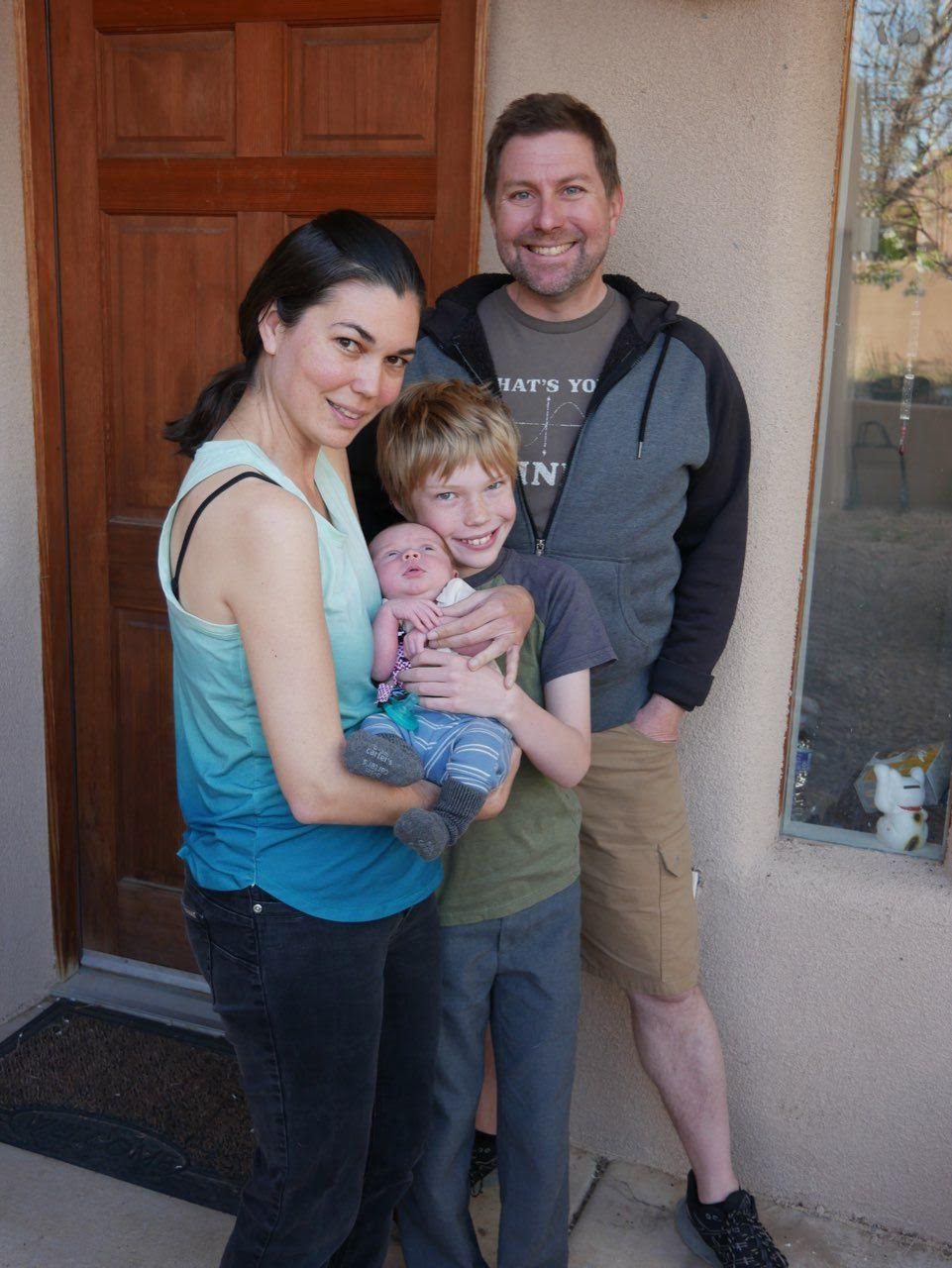
1 Month
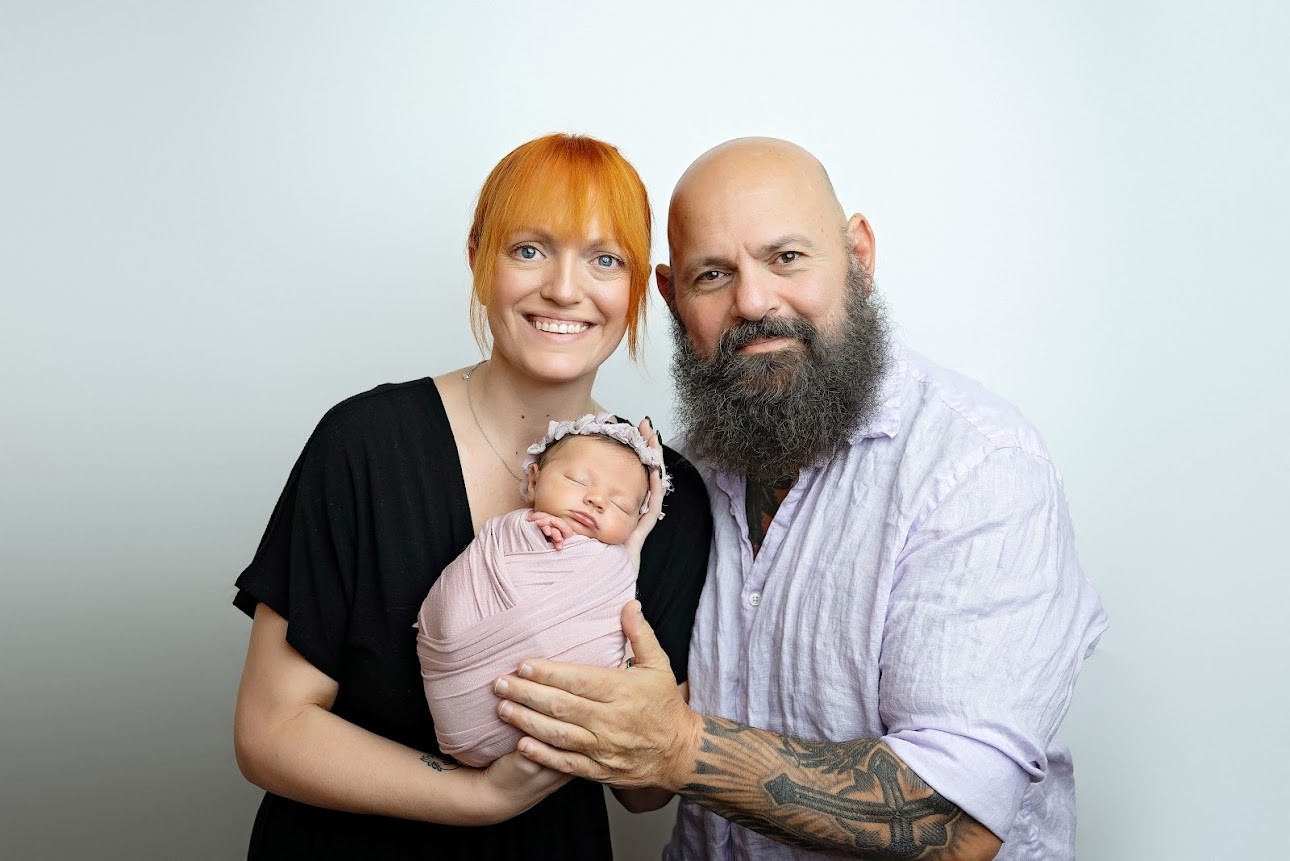
3 Weeks
Comprehensive Support Throughout Your Journey
From initial consultation through post-birth legal finalization, our team guides you through every step of building your family. You'll never wonder what comes next or whether you're making the right decisions.
We help you choose the most favorable state based on your specific situation—whether you're married, unmarried, single, or have particular legal concerns. This targeted guidance can save you thousands of dollars and months of delays.
Most importantly, we've helped hundreds of gay and lesbian couples achieve their dreams of parenthood through interstate arrangements. You're not alone in this process, and you don't have to figure it out by yourself.
Louisiana LGBTQ Fertility Law Attorneys and Interstate Surrogacy Specialists
Family law attorneys specializing in same-sex fertility matters within Louisiana remain limited, but you're not without legal support. Many Louisiana attorneys collaborate with out-of-state fertility law specialists to ensure complete legal coverage throughout your family building process.
For local legal support, consider consulting with family law attorneys experienced in LGBTQ adoption procedures, working with attorneys who can coordinate with fertility law specialists in other states, or seeking referrals through Louisiana LGBTQ legal organizations.
Keep in mind that legal outcomes can vary significantly depending on which Louisiana parish (county) handles your case, as courts have discretion in how they interpret and apply surrogacy and adoption laws. An experienced local attorney can help you understand the tendencies and preferences of courts in your specific jurisdiction.
Building a strong legal team often involves both local and specialized attorneys working together to protect your interests from start to finish.
Need attorney referrals? Reach out to our team for connections to LGBTQ-friendly fertility lawyers who can support your family building process, whether in Louisiana or your chosen state.
Louisiana LGBT Couples: Interstate Surrogacy Process and State Selection
Your path to parenthood doesn't have to be delayed by Louisiana's restrictive laws. Moving forward requires confidence and clarity about your options.
Schedule Your Personal Consultation: Connect with our team to discuss your specific situation, timeline, and preferences for supportive states. This conversation helps you understand your options without any pressure to commit.
Explore State-by-State Options: We'll walk you through the legal landscape in states like California, Connecticut, Delaware, and others that welcome gay and lesbian families. You'll learn exactly what each state offers and which might be the best fit.
Begin Connecting with Potential Surrogates: Start meeting carefully screened surrogates who genuinely support LGBTQ family building and are eager to help you become parents faster. Our matching process considers personality, values, and practical considerations to find your perfect match.
Secure Expert Legal Representation: Work with fertility lawyers who understand both Louisiana's restrictions and your chosen state's protective laws. This dual expertise ensures nothing falls through the cracks.
Move Forward with Complete Confidence: With proper planning and professional support, you can navigate interstate arrangements successfully and bring your baby home to Louisiana as recognized legal parents.
Beginning Your Louisiana-Based Same-Sex Surrogacy Journey in Supportive States
Louisiana's current laws may present challenges, but they absolutely don't have to prevent you from building the family you've always dreamed of. Thousands of gay and lesbian couples have successfully navigated interstate arrangements, and with the right guidance, you can join them.
You don't have to wait any longer to start your family. Louisiana's laws create obstacles, but the path to parenthood through surrogacy remains wide open through partnerships with supportive states.
Your dreams of parenthood are valid, achievable, and closer than you might think. Every day you wait is another day your future child isn't in your arms, and you deserve to move forward with confidence and support.
Ready to take the first step? Begin today and discover how American Surrogacy can help you navigate same-sex family building laws to achieve your dreams of parenthood—faster and with complete legal protection.